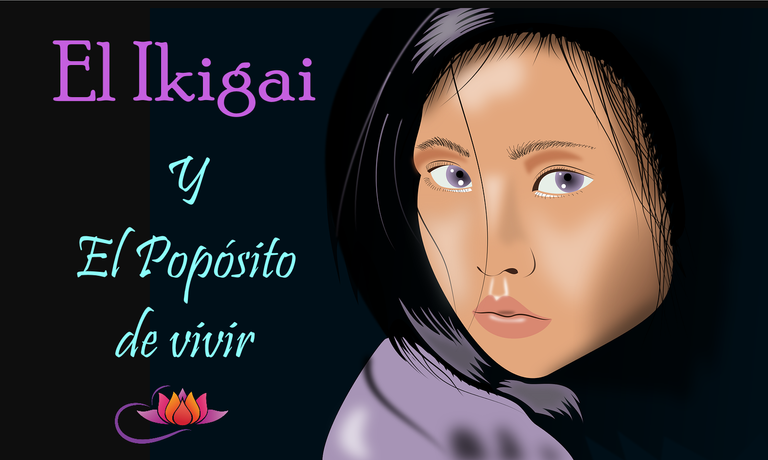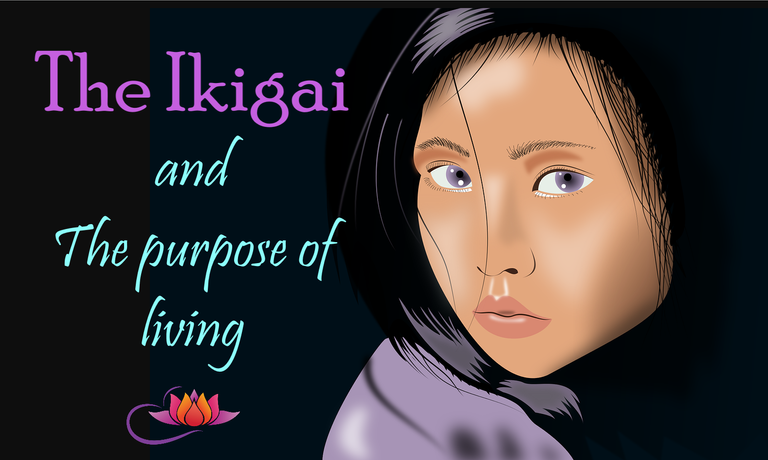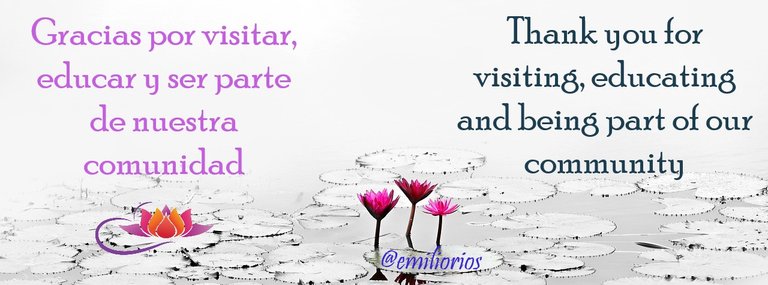

¿Se imaginan ustedes a nuestros hermanos japoneses en esas grandes ciudades como Tokio, en la mañana temprano, moviéndose para ir a trabajar apretujados en un tren?
¿Cuál es el sentido de la vida en unas circunstancias en la que, aparentemente, el estrés comienza temprano en la mañana?
¿Son las jornadas laborales largas una justificación para vivir una existencia esclavizada a un trabajo o son herramientas para lograr cumplir la razón de tu existencia?
Mientras me hacía toda una serie de preguntas acerca de, cuál es el sentido de la vida en el ser humano moderno; encontré esta palabra japonesa:
Ikigai.
Que, sin tener una traducción directa, es un término que encarna la idea de:
La felicidad de vivir.
Ikigai, en Japón, es el motivo para despertarte cada mañana y sentirte pleno; y es una palabra que realmente merece estudiarse, porque es parte de la cultura oriental que pudiéramos utilizar como guía o referencia a nivel occidental, para entender, el propósito de nuestras vidas.



“Los dos días más importantes de la vida son el día que naces y el día que descubres por qué.”
Mark Twain

¿Por qué decidimos seguir viviendo a pesar de las desgracias?
Me disculpan si comienzo con una pregunta un poco fuerte.
Pero estuve leyendo, que un destacado neurólogo, psiquiatra y filósofo, que sobrevivió a los campos de concentraciones nazis como el de Auschwitz y el de Dachau; el Dr. Viktor Frankl (1905-1997); tenía la costumbre de preguntarle a sus pacientes en plena sesión de terapia: ¿Usted por qué no se suicida?
De hecho, a partir de las experiencias que tuvo como médico, pudo escribir el libro: El hombre en busca de sentido; lo que le dio la posibilidad de comenzar a trabajar con el propósito de la vida.
A partir de esto, una escuela se desarrolló, llamada: Logoterapia; de “logo” en griego, que es el sentido-significado; y “terapia” que significa tratamiento o cuidado; y es, la terapia con base en el sentido, que fue propuesta y definida por Frankl, para sanar a través de encontrar el sentido de la vida.

El propósito de vivir
¡Qué difícil es poder plantearse claramente esta situación! No, no es sencillo para nosotros mismos ni para los otros.
¿Para qué vivo? ¿Cuál es el propósito de mi existencia?
En @holos-lotus hemos hablado muchas veces de que el propósito final de la existencia es la felicidad misma; yo he defendido esto y lo he dejado plasmado en mis artículos muchas veces.
Pero, es que existen tres tipos de felicidad, según algunos autores; y el propósito de la vida, así como el placer y la pasión, son las que han sido definidas como tal, como tipos de felicidad.
¿Cuál es el sentido, cuál es la brújula que nos permite a nosotros tener motivación y poder de decisión, de hacer sacrificios, para realizar las acciones en búsqueda de un objetivo en específico?
¿Cuál es el propósito que nos mueve?
Aquí es donde entra la palabra Ikigai; que es el llamado secreto japonés para encontrar el propósito de nuestra existencia y el porqué de la felicidad de despertarnos cada mañana.
Veamos qué significa esto:

El Ikigai japonés
Como ya dijimos, no existe una traducción literal; y está compuesta la palabra, de sílabas que, al unirse, hablan de la vida –iki- y de lo que merece la pena, lo que tiene valor o mérito -gai-.
El origen de esta palabra se remonta a mil años atrás, pero sigue, su significado, en la cultura Oriental, tan vigente hoy en día como entonces.
Saber cuál es el propósito de identificar la felicidad o motivo para levantarte cada mañana y encontrar el propósito de tu existencia.
Y esta reflexión japonesa nos lleva a indagar cuatro situaciones claves en el individuo:
1.- Lo que te llena; que es tu pasión.
2.- Lo que otros necesitan o tu servicio; que es tu misión.
3.- Lo que te gusta hacer y se te da bien; que es tu talento.
4.- Y lo que puedes hacer para cobrar o sustentar tus necesidades; que es tu profesión.
Estas cuatro situaciones definen por qué vivir.
De paso y relacionado con las ciencias de la conducta, existe un test que evalúa el sentido de la vida y que te da las pautas para entender en qué situación te encuentras en este momento respecto a lo que es el propósito de tu existencia:
Es El Test Propósito en la Vida o Purpose In Life Test, que llamamos el PIL, por sus siglas en inglés; y que también ayuda a evaluar tu motivación, pues, el PIL analiza cuatro factores principales:
1.- La percepción del sentido de vida o experiencia de saber o no sobre ese sentido de vida.
2.- Cómo percibes la vida; si plena de cosas buenas o no.
3.- Cuáles son tus metas y tareas que te definen.
4.- Y por último, la dialéctica entre destino e igualdad; o lo que nos ayuda a indagar nuestra actitud ante la muerte.
Si te es interesante puedes conversar con tu médico de cabecera o de familia para realizarte este test.

El porqué es importante conocer y establecer el propósito
Como podemos ver, este es un tema profundo que hay que desarrollar.
Hemos dejado por aquí dos claves importantes: El principio japonés y sus cuatro dimensiones; así como, las dimensiones que se miden a través del test de propósito de vida.
Igualmente, en mi última iniciativa, la iniciativa 10 en Séptimo Día, sobre el Síndrome de Burnout; se expone perfectamente lo que es el desgaste cuando no sabemos los objetivos que tenemos ni el camino para llegar a cumplir esos objetivos.
Y además, he notado, como mucha gente ni siquiera tiene en mente, al momento de elegir un emprendimiento o las acciones que debe realizar para conseguir los objetivos de vida, lo que quiere definir en su existencia.
Compaginar todas esas dimensiones va a hacer que tengas más tranquilidad, facilidad para buscar las herramientas correspondientes y perder la menor cantidad de tiempo en actos fallidos y en emociones negativas.
Es cuestión de experimentar, de entrenar y de aprender tú mismo, para alcanzar el propósito final de toda la existencia que es, tener una vida sana y feliz.
Junto a todo esto, está el tema de conocerse, de ir creando el autoconcepto y una autoestima saludable; todas, temáticas que hemos tocado últimamente en la comunidad y que seguiremos tocando.
La respuesta que hemos tenido en publicaciones sobre estos temas, ha sido insuperable; rebasando todas las expectativas que teníamos en cuanto al número de artículos compartidos con los tòpicos propuestos.
Una gran señal de que hoy es necesario actualizar conocimientos y herramientas a base de la experiencia propia y la de los demás.
Te dejo, entonces, este tema, con la posibilidad de que lo investiguemos y desarrollemos para que exista un aprendizaje sólido y comunitario que nos beneficie a todos por igual en #hive


The Japanese Ikigai: The secret to finding the meaning of existence -Necessary Reflections-


Can you imagine our Japanese brothers and sisters in those big cities like Tokyo, in the early morning, moving to work crammed into a train?
What is the meaning of life in circumstances where stress apparently starts early in the morning?
Are long working hours a justification for living an existence enslaved to a job or are they tools to fulfill the reason for your existence?
While I was asking myself a whole series of questions about, what is the meaning of life in the modern human being; I found this Japanese word:
Ikigai.
Which, without having a direct translation, is a term that embodies the idea of:
The happiness of living.
Ikigai, in Japan, is the reason to wake up every morning and feel fulfilled; and it is a word that really deserves to be studied, because it is part of the oriental culture that we could use as a guide or reference at western level, to understand, the purpose of our lives.



"The two most important days in life are the day you are born and the day you find out why."
Mark Twain

Why do we decide to go on living despite misfortunes?
Forgive me if I start with a bit of a strong question.
But I was reading that a prominent neurologist, psychiatrist and philosopher, who survived Nazi concentration camps such as Auschwitz and Dachau, Dr. Viktor Frankl (1905-1997), had the habit of asking his patients in the middle of a therapy session: "Why don't you commit suicide?"
In fact, from the experiences he had as a doctor, he was able to write the book: Man's Search for Meaning; which gave him the possibility to start working with the purpose of life.
From this, a school developed, called: Logotherapy; from "logo" in Greek, which is the meaning-meaning; and "therapy" which means treatment or care; and it is, the therapy based on the meaning, which was proposed and defined by Frankl, to heal through finding the meaning of life.

The purpose of living
How difficult it is to be able to think clearly about this situation! No, it is not simple for ourselves or for others.
What is the purpose of my existence?
In @holos-lotus we have spoken many times that the ultimate purpose of existence is happiness itself; I have defended this and I have stated it in my articles many times.
But, is that there are three types of happiness, according to some authors; and the purpose of life, as well as pleasure and passion, are the ones that have been defined as such, as types of happiness.
What is the meaning, what is the compass that allows us to have motivation and power of decision, to make sacrifices, to perform actions in search of a specific objective?
What is the purpose that moves us?
This is where the word Ikigai comes in; which is the so-called Japanese secret to find the purpose of our existence and the reason for the happiness of waking up every morning.
Let's see what this means:

The Japanese Ikigai
As we have already said, there is no literal translation; and the word is composed of syllables that, when joined together, speak of life -iki- and of what is worthwhile, what has value or merit -gai-.
The origin of this word goes back a thousand years, but its meaning, in the Oriental culture, is as valid today as it was then.
Knowing what is the purpose of identifying happiness or motive to get up every morning and find the purpose of your existence.
And this Japanese reflection leads us to investigate four key situations in the individual:
1.- What fulfills you; which is your passion.
2.- What others need or your service; which is your mission.
3.- What you like to do and what you are good at; which is your talent.
4.- And what you can do to get paid or support your needs; which is your profession.
These four situations define what you live for.
Incidentally, and related to the behavioral sciences, there is a test that evaluates the meaning of life and gives you the guidelines to understand in which situation you are at this moment with respect to what is the purpose of your existence:
It is The Purpose In Life Test, which we call the PIL, for its acronym in English; and that also helps to evaluate your motivation, because, the PIL analyzes four main factors:
1.- The perception of the meaning of life or experience of knowing or not knowing about that meaning of life.
2.- How you perceive life; whether it is full of good things or not.
3 .- What are your goals and tasks that define you.
4.- And finally, the dialectic between destiny and equality; or what helps us to investigate our attitude towards death.
If you find it interesting you can talk to your family doctor to take this test.

Why it is important to know and establish the purpose
As we can see, this is a deep topic that needs to be developed.
We have left here two important keys: The Japanese principle and its four dimensions; as well as, the dimensions that are measured through the life purpose test.
Likewise, in my last initiative, initiative 10 in Seventh Day, about Burnout Syndrome; it is perfectly exposed what burnout is when we do not know the objectives we have nor the way to reach those objectives.
And furthermore, I have noticed how many people do not even have in mind, when choosing an undertaking or the actions to be taken to achieve life goals, what they want to define in their existence.
Combining all these dimensions will make you have more tranquility, ease to look for the corresponding tools and lose the least amount of time in failed acts and negative emotions.
It is a matter of experimenting, training and learning yourself, to achieve the ultimate purpose of all existence, which is to have a healthy and happy life.
Along with all this, there is the issue of knowing yourself, building your self-concept and a healthy self-esteem, all topics that we have been discussing lately in the community and will continue to do so.
The response we have had in publications on these topics has been unsurpassed, exceeding all expectations we had in terms of the number of articles shared with the proposed topics.
A great sign that today it is necessary to update knowledge and tools based on one's own experience and that of others.
I leave you, then, this topic, with the possibility that we investigate and develop it so that there is a solid and communal learning that benefits us all equally in #hive.

Emilio Ríos – Venezuela
@emiliorios


- Encontrar tu propósito de vida implica disciplina; por eso te invito a que leas este artículo de @emprendiendohistorias.com del 2019: 10 Pasos para encontrar tu verdadero propósito de vida; el cual es bastante preciso y aleccionador, con otra perspectiva más occidental que la que yo te expongo aquí.
Finding your life purpose involves discipline; that's why I invite you to read this 2019 @emprendiendohistorias.com article: 10 Steps to finding your true life purpose; which is quite accurate and sobering, with another, more Western perspective than the one I present here.
- El logo de Holos&Lotus de la imagen principal es de:
The Holos&Lotus logo in the main image is from:
Pixabay- 2405360
- Barras separadoras y logo de English, editadas en Paint, de:
Separator bars and English logo edited in Paint, from:
Pixabay-Tommyvideo
Cintillo personalizado de @emiliorios con el logo de #Hive, realizado por la excelente creadora @mosa71
Custom @emiliorios headband with the #Hive logo, made by the excellent creator @mosa71Nuevo logo de Twitter tomado de la plataforma de la red social.
New Twitter logo taken from the social network platform.Dibujo de agradecimiento, tomando el logo de nuestra comunidad y editado en Paint, de:
Thank you drawing, taking our community logo and edited in Paint, by:
Pixabay-Carlchen1968
- Si lo deseas, puedes seguirnos en:
If you wish, you can follow us at:




